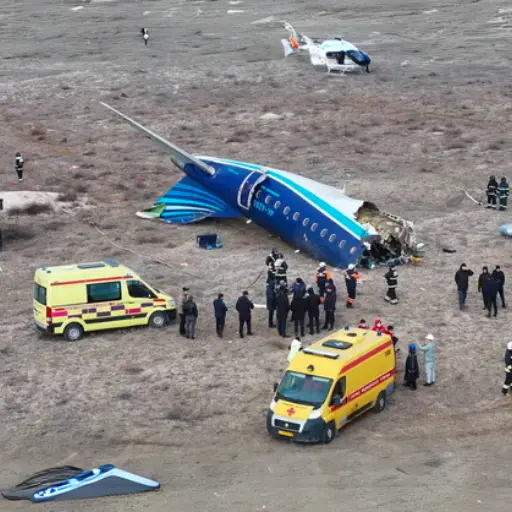Exclusive: Investigation Confirms Russian Missile Caused Azerbaijan Airlines Crash

Preliminary findings from Azerbaijani government sources confirm that a Russian surface-to-air missile caused the crash of an Azerbaijan Airlines Flight 8432 near Aktau, Kazakhstan, on Wednesday.
Mid-Air Incident Over Grozny
According to sources cited by Euronews, the missile was launched during drone activity over Grozny. Shrapnel from the Pantsir-S air defense system detonated near the aircraft mid-flight, causing significant damage to the plane and injuring passengers and cabin crew.
Despite the severity of the situation, Russian authorities reportedly denied the plane’s requests for an emergency landing at nearby airports, forcing the pilots to navigate the damaged aircraft across the Caspian Sea to Aktau.
Further compounding the challenges, the plane’s GPS navigation systems were jammed throughout its flight path, leaving the crew to contend with limited guidance.
Missile Launch During Drone Interception
The missile was allegedly fired as Russian air defense forces engaged in countering Ukrainian UAVs over Chechnya. Khamzat Kadyrov, head of the Security Council of the Chechen Republic, confirmed a drone attack over Grozny on Wednesday morning but stated that there were no casualties or damage on the ground.
This incident has parallels to the 2014 MH17 disaster, where a Malaysian Airlines passenger plane was shot down over Ukraine. However, this time, Russian citizens and nationals of neighboring countries were among the casualties.
Questions About Emergency Response
One of the most troubling aspects of the crash is the refusal of Russian authorities to allow an emergency landing. This decision left the damaged aircraft with no choice but to risk the perilous journey across the Caspian Sea.
This has drawn comparisons to the 2018 Air Astana incident, where an Embraer 190 faced severe hydraulic failure over Portugal but managed to land safely with the assistance of the Portuguese Air Force.
Investigation Underway
A full investigation is expected to shed light on several critical issues:
- The circumstances surrounding the missile launch.
- The decision to deny emergency landing requests in Russian airspace.
- The rationale behind instructing the damaged plane to cross the sea.
The tragedy underscores the risks of escalating military activity in civilian airspace and raises pressing concerns about the safety of commercial aviation in conflict zones.
The findings could have significant geopolitical and legal ramifications, particularly if Russian culpability is confirmed.






